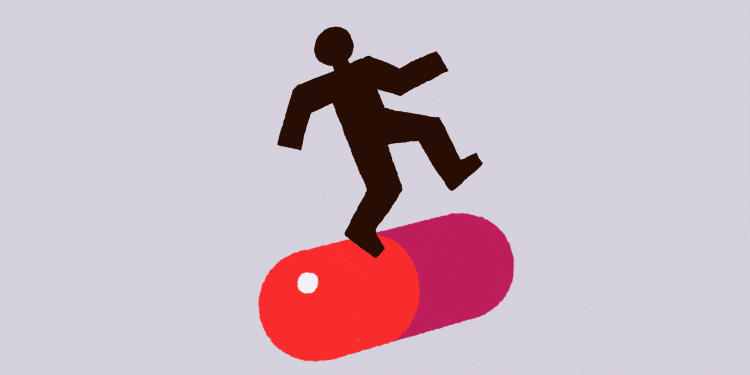More than 90 percent of adults aged 65 and older take at least one prescription medication, and 66 percent of people in this age group take more than three prescriptions per month.
But many people who take daily medications are unaware that some medications in their pill bottle can also increase their risk of falls, which can lead to devastating and even fatal complications.
Falls are the leading cause of injury among Americans over 65 and can be life-changing for many. About half of people who break their hip are no longer able to live independently. Broken hips also increase the risk of death.
How Medications Can Cause Falls
Prescription medications can cause falls in several ways. For example, pills that lower blood pressure can cause dizziness or dizziness, especially if you get up suddenly. This can be particularly risky in frail or unstable people.
Be careful of mixing medications and alcohol
People who take prescription medications need to be more careful about their alcohol consumption, at any age.
Combining alcohol with certain medications increases the risk of drowsiness and fainting and reduces a person’s coordination.
This is especially true for older people. “If you take an antidepressant at age 70 and have a glass of wine, you get a double whammy,” says Shubert.
Medications that make you drowsy — such as sleeping pills, painkillers, or certain painkillers — also increase your risk of falling, says Tiffany Shubert, a physical therapist in Chapel Hill, North Carolina, and president of the American Physical Therapy Association Geriatrics. and National Council Task Force on Aging. She recommends people talk to their doctor or pharmacist if one of their medications makes them drowsy to ask how they can reduce their risk of falling.
It’s also important to know that medications work differently in our bodies as we age, says Sarah Nosal, MD, president-elect of the American Academy of Family Physicians.
“Our kidneys and liver change the way they process medications and our body loses muscle mass and has more fat tissue as we age, which can change the way our body breaks down medications and eliminates them from our system,” says Nosal.
Substances such as medications and alcohol tend to stay in our bodies longer, potentially increasing the risk of side effects that can lead to falls, Nosal adds. Medicines that were safe when we were younger may pose higher risks as we age. Older people may need a lower dose of certain medications than younger people.
“If you’re prescribed Valium to treat anxiety in your 40s and you continue to take that dose into your 70s, it could be like (taking) a double dose,” says Shubert.


